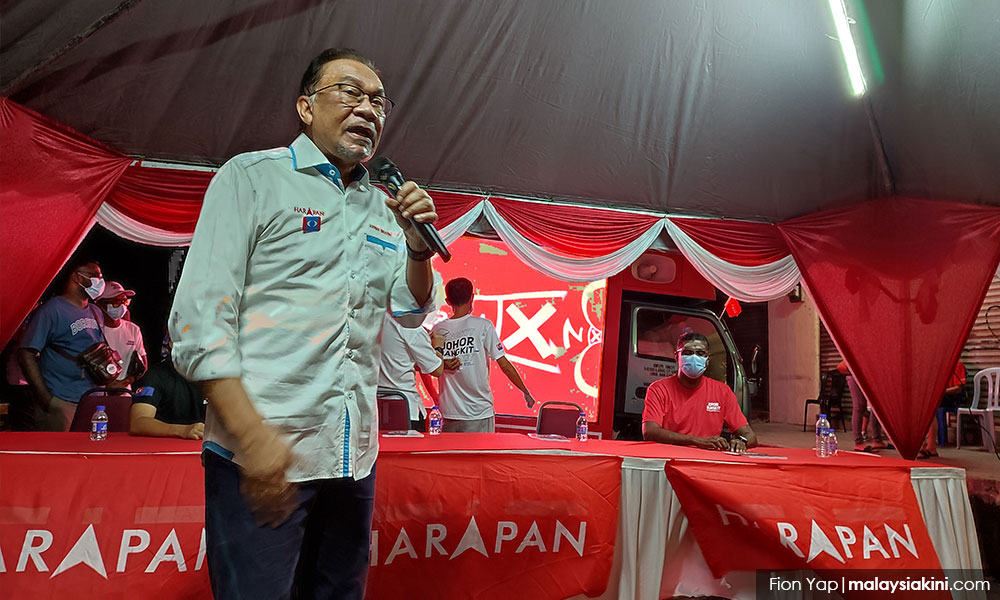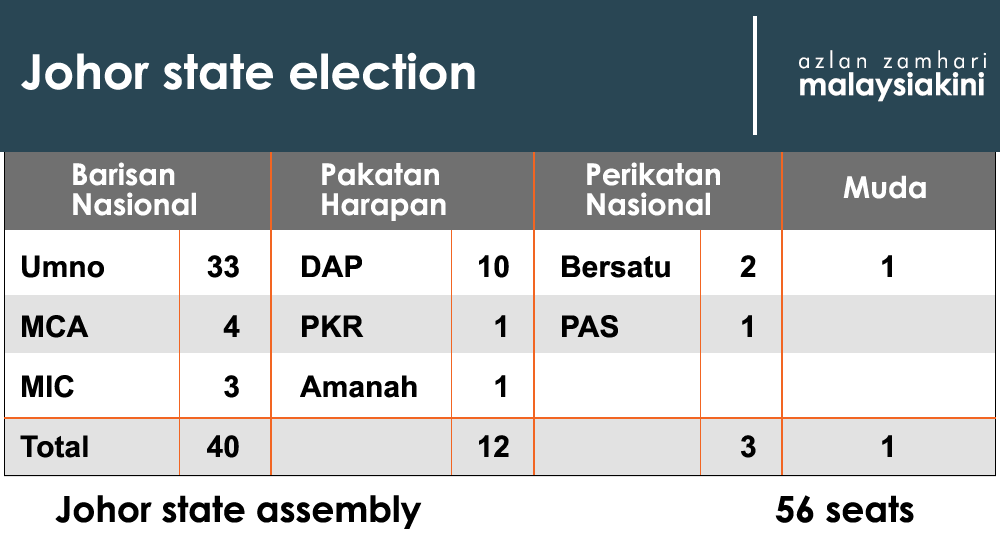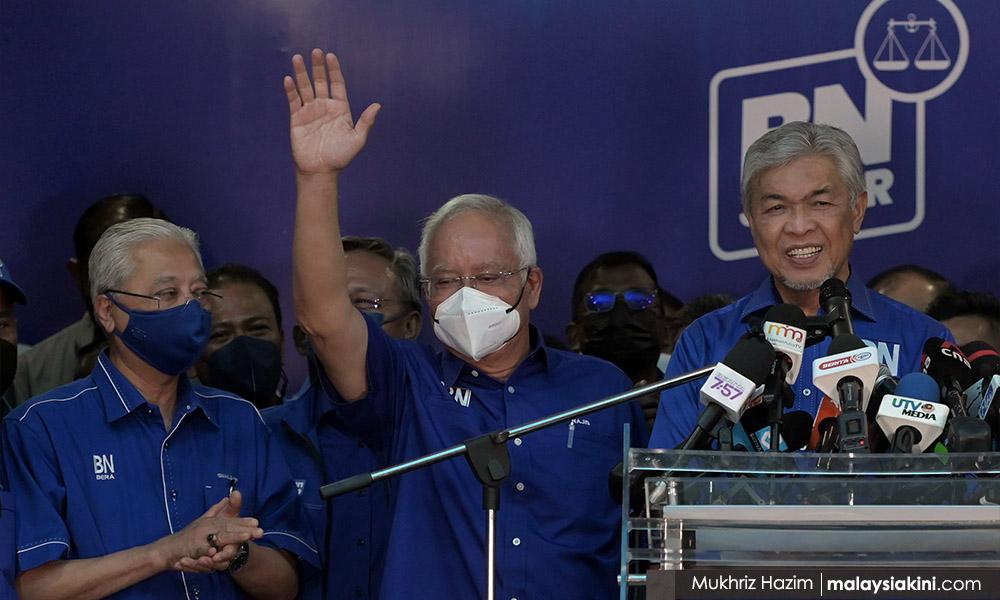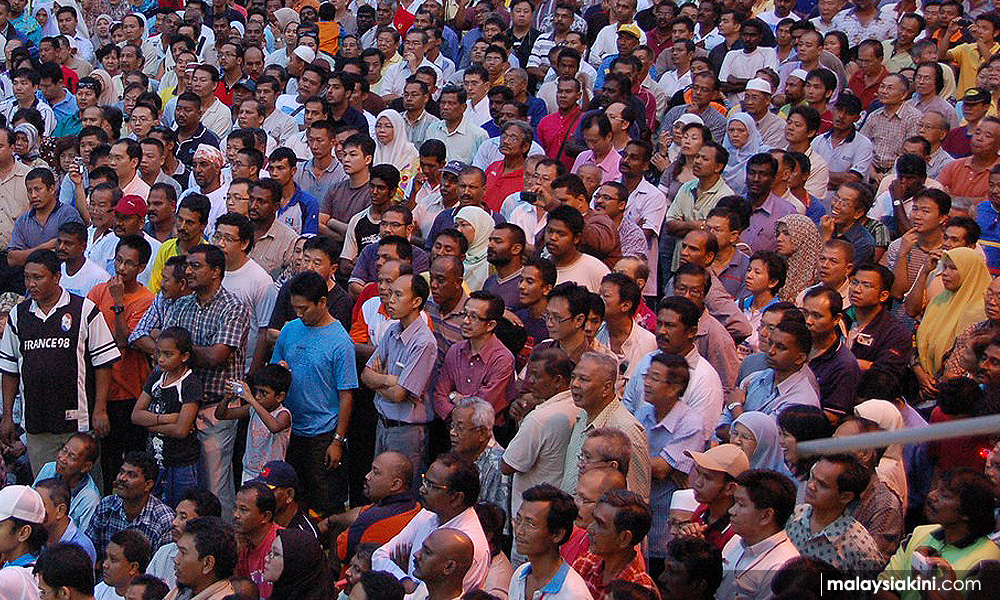BN landslide in Johor today; BN landslide in general election tomorrow.
BN supporters rejoice; what do the rest of us do?
I’ll share my own answers to that question below, but let’s start with what we shouldn’t bother doing.
First: avoid wasting time trying to tell the opposition what to do, which leaders they should change, and so on - they don’t give a rat’s behind.
I say this with love to all involved, and with no anger or frustration. I don’t feel these people are bad for not listening. It’s just the nature of the game.
Politicians act within a very well defined arena, complete with a very specific cost-benefit calculus that informs their every decision. Simply put, their calculus is different from ours, and it is a waste of time and energy trying to change their calculus into ours. Many of us learned this the hard way.
Those politicians feel - rightly to an extent - that we wouldn’t understand their decisions unless we were in their shoes.
Let’s briefly examine what’s likely to happen in opposition circles.
Most obviously, there will be calls for Anwar Ibrahim to step down. This is one of the most boring debates ever.

My dad says that you’re not successful until you have a successor. One of the most legitimate critiques I’ve heard about Anwar is that he has never, ever been interested in grooming a successor.
Some say that he prefers the tier of leaders below him to be disunited and fighting among themselves, because that makes him indispensable.
From our perspective, this is a bad strategy. Yet, when we come to the question of who should replace Anwar as leader of the opposition, everyone starts fighting again. So, maybe from his perspective, the strategy works.
There will also be people talking about how a united opposition would have changed the Johor results. This is true, but perhaps not as much as some think.
Out of BN’s 40 seats won, about 20 were won with more than 50 percent of the vote - meaning it may not have mattered even if there was only one opposition party contesting.
In the other 20 seats, it also cannot be guaranteed that votes that went to PN for instance would have gone to Pakatan Harapan instead of BN.
The DAP paradox
Interestingly, post-Johor DAP finds itself being thrown back in time, and occupying a space very similar to the space it occupied in Parliament in 2004.

In Johor 2022, DAP won 10 out of the opposition’s 16 state seats (63 percent). In the 2004 general elections, it won 12 out of the opposition’s 18 parliamentary seats (67 percent).
In both instances, DAP basically has almost double the seats of every other Malay-based party combined.
Whenever I think about DAP’s long term future, I keep coming back again and again to the points I made in an article last year entitled ”The DAP paradox”.
I argued that, to an extent, the more seats DAP wins (especially relative to its allies), the more useless it becomes. I wrote:
“They cannot be non-Malay led, a single unit of immense political strength, and at the true forefront of national decision-making, all at the same time. This combination simply does not work; perhaps a more workable formula is to aim for two out of the above three.”
At first, I worried that this flashback to 2004 bode ill for Malaysia’s race relations, as the perception of a Malay-based government and a Chinese-based opposition is not a good one.
Then I remembered: a BN government will not care about a few DAP seats. They may even prefer DAP to be the biggest opposition party.
History has taught us over and over again that when BN is this powerful, the centre of gravity for Malaysian politics shifts from BN fighting others to infighting within BN.
This of course is already taking shape. Najib Abdul Razak and Ahmad Zahid Hamidi were constantly at the forefront in Johor, while Prime Minister Ismail Sabri Yaakob seemed far away.
This is because it does not really benefit Ismail Sabri to call for elections barely half a year after he became prime minister. He and his friends have barely had time to enjoy the perks!
Najib, Zahid, and friends, meanwhile, likely smell that this is their best opportunity to storm back into power, and extract themselves from their courtroom troubles.

In other words, it’s fairly clear that BN would win the snap general election if called today; but it’s much less clear who would emerge as prime minister. That’s probably where the next real big political fight is.
Inertia in the opposition
Opposition parties basically have two choices. They can make a radical change, or they can keep banging their heads against the same wall.
I predict the latter because they will not be willing to do the former. This state of affairs has less to do with individual leaders (and/or replacing them), and more to do with path dependency and structural determinism.
In short, their collective cultural and structural inertia is simply too big.
Even though they are fully aware that big change is necessary, they will find themselves too constrained, and too unwilling to overturn and revolutionise the way things have been done for so long. In their minds, it is simply too big a price to pay.
Ultimately, they will only consider options within what is essentially an established comfort zone.
Meaningful change will thus not come from inside those parties, any more than it will come from within BN.
Absent from such a big change, they will only go around shopping the same few names that have been shopped before as “beacons of hope” - Shafie Apdal, Rafizi Ramli, Nurul Izzah Anwar, Syed Saddiq Syed Abdul Rahman and so on.
They have their own supporters, but none have achieved universal support.
(For those who clamour so longingly for leaders like Rafizi or Nurul Izzah to come back and are so perplexed as to why they do not, talking to anyone with firsthand experience working in or closely around PKR may offer you some insight).
Thankfully, Pejuang’s performance in Johor will likely put paid any talk of Dr Mahathir Mohamad ever being relevant again.

The turnout in Johor was only 55 percent. Any decent political strategist will ask the question: how do we get the other 45 percent to vote for us?
In its current trajectory, it is unlikely that the opposition will come up with genuinely fresh and dynamic answers to this question. It is more likely to continue rehashing and repackaging old strategies - ones that did not even win over the 55 percent, and are unlikely to move the remaining 45 percent.
So round and round they will go - wanting big change, but unwilling to make big changes - likely limping ahead to GE 15 with Anwar because there is “no one else”.
What’s next?
So, do we hang our heads in despair and await the inevitable?
Of course not. We fight on.
But we probably have to fight smart - certainly smarter than we ever have before. And we will have to be patient (as in: a timeframe of decades, not just years).
In my humble opinion, the reason the opposition is so lost is not because of individual leaders. That’s a convenient target, but engaging in endless polarising, feudal debates about which leader we should follow is one of our favourite wastes of time.
The reason they are lost is because they are not anchored in a clear, collective sense of purpose (and haven’t been for a very, very long time).
Even the name “Opposition” encapsulates all that is wrong with how they think of themselves.
It is not enough to define yourself in “opposition” to something else.
Harapan came together in opposition to Najib. Its short two years in power is convincing proof that that alone is not enough to hold a coalition together.
Something genuinely new
What Malaysia needs is a movement that is willing to bring Malaysians together to do the hard, frustrating work of figuring out what we actually want for our country.

I’m not talking about Malaysians who already agree with one another. I’m talking about beginning to build bridges between the many Malaysians who hate each other.
If those conversations don’t make us angry and frustrated, they probably aren’t worth having. If they don’t make you feel like flipping the table and never coming back, they’re probably not the right conversations.
If we succeed in bringing people back to that table again and again though, I’m betting we’ll have taken the first step in achieving what no other Malaysian political party has achieved before - true nation-building.
Nation-building first, politics second
Anyone can start a new political party.
But maybe what Malaysia needs is something that is a collaborative, consensus-building, value-adding grassroots movement first, and an electoral contender second.
Having been in this space for almost 20 years, I feel like being one without the other ultimately achieves precious little.
This article has gotten too long for me to describe what I mean in detail here, but work on this movement has already started.
In short, I think it’s time we stop arguing about what other people should do, and start having serious discussions about what we can do.
I do not recommend building another pop-up political party for the short term.
I recommend laying the foundation for a movement that has the right ingredients for success, whether it takes one, two, three, or more GEs before achieving it. - Mkini
NATHANIEL TAN works with Projek #BangsaMalaysia. Twitter: @NatAsasi, Email: nat@engage.my. #BangsaMalaysia #NextGenDemocracy.
The views expressed here are those of the author/contributor and do not necessarily represent the views of MMKtT.




No comments:
Post a Comment
Note: Only a member of this blog may post a comment.